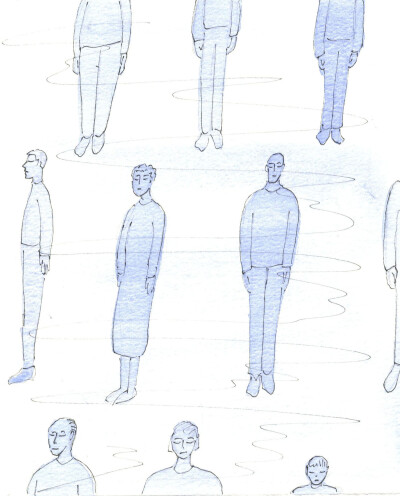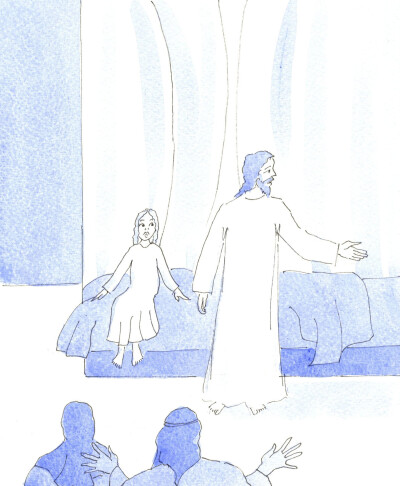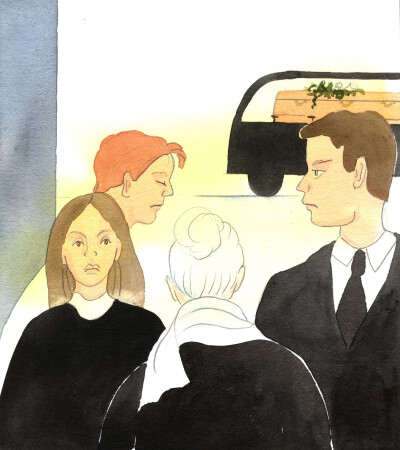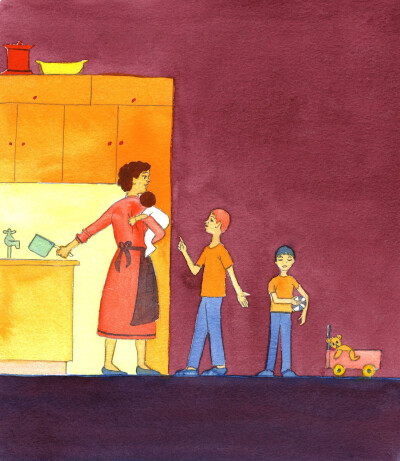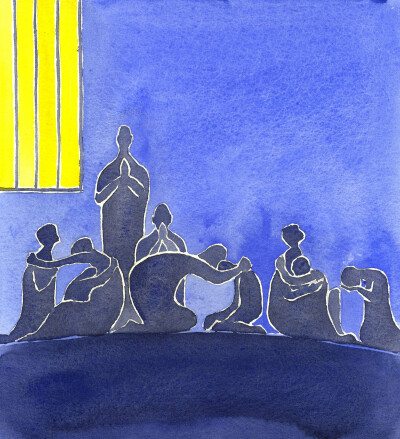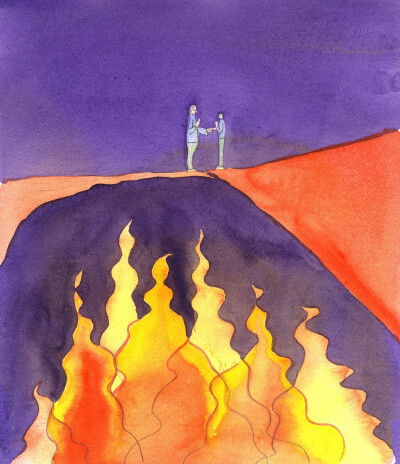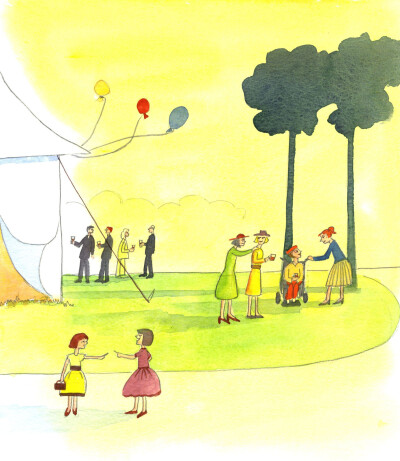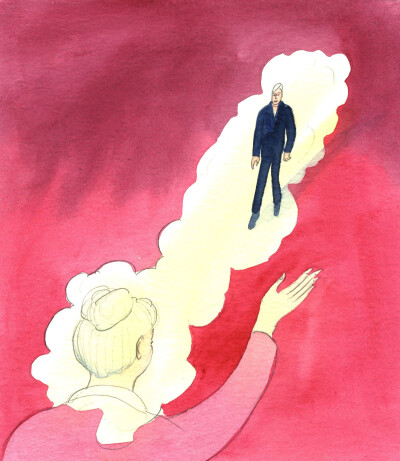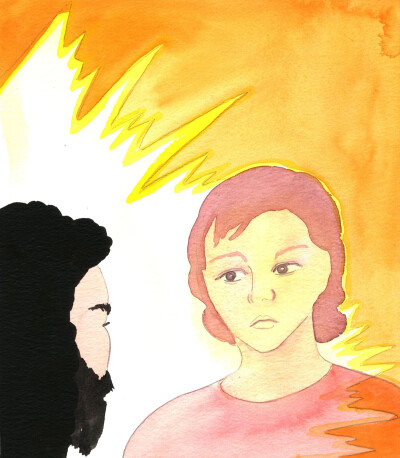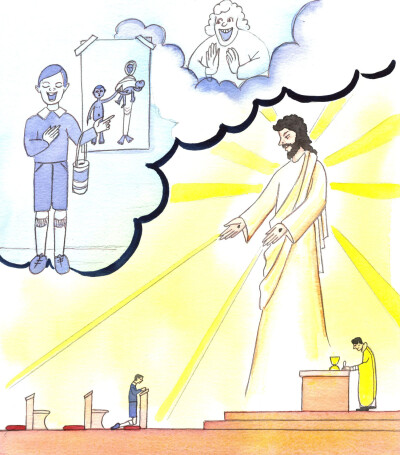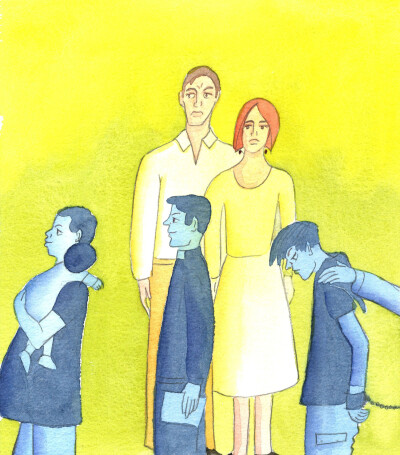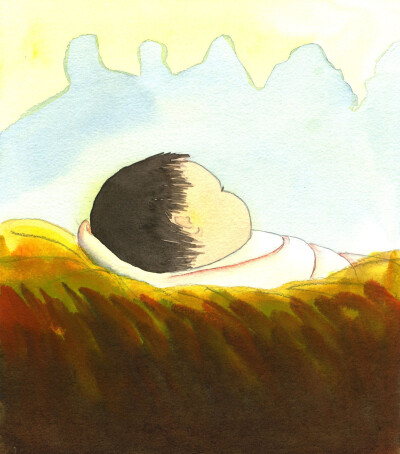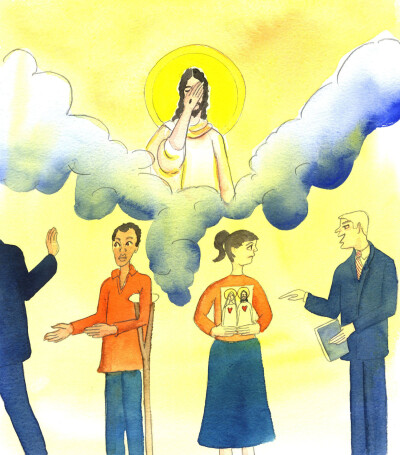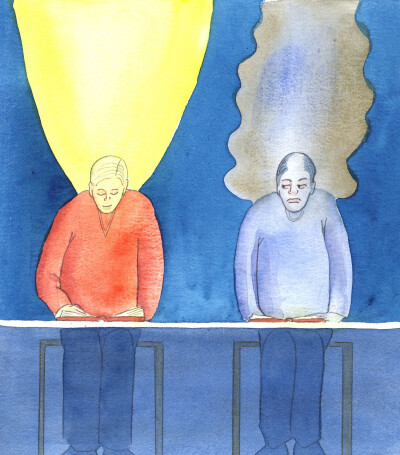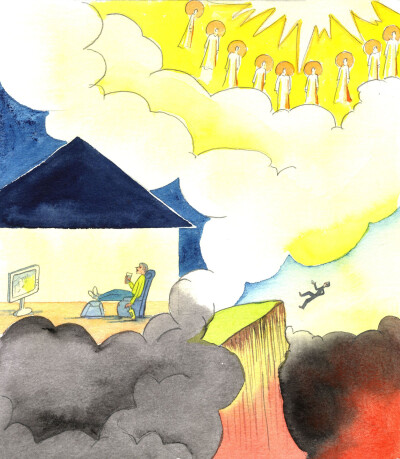Search Page
Showing 41 - 60 of 101
The Holy Souls in Purgatory undergo an interior cleansing and transformation, as they realise how much time they wasted in earthly life, when they might have shown greater love towards God and their neighbours, in humility and obedience.
By showing concern about people who need food and drink, we demonstrate the love in our hearts - as Jesus did when He healed a little girl, the asked for her to be fed, and as we do when we work for our own family day after day, for many years.
It is not necessary for everyone to live in grim, colourless, puritanical surroundings, as if by austerity and simplicity we can prove our love for God and the poor. It is part of the duty of family care, and hospitality, to greet and entertain people in pleasant surroundings, just as Jesus offered 'the best wine'.
Christ is pleased when we step forward when people are grieving, to offer comfort, or to make kind enquiries - even if those people are strangers. It is better than hurrying past, worrying about them but not acting.
God wants everyone to know that we don't need special circumstances in which to show out love for God and our neighbour, or advanced education or special training or equipment. In whatever vocation God has called us to undertake, we can show our love, and - by the graces won for us by Christ - prepare for Eternity in Heaven.
The Holy Souls have only each other for company: such sad company, as they weep, and bewail the times they wasted on earth when they might have shown more love for God or their neighbour, or might have been quicker to repent of their sins. But at least they are safe now, and grateful for safety - with Heaven to look forward to, in the end.
It is a work of mercy to pray and preach so that people who are cruel and thoughtless towards others will repent before they die. Those who have no respect for fellow human beings, or no respect for the poor and the weak, are as if an inch away from Hell, should death suddenly arrive before they can repent and avoid eternal punishment.
Some people have travelled far, to spread the Gospel; yet we do not have to do magnificent things in order to please Christ. A simple act of love, for example - keeping someone company at a meal, or on a journey, can be as great, in Christ's sight, as the work of spreading the Gospel throughout the land, and can bring about as much good, in souls.
A person who decides, for love of Christ, to seek out the most lonely or weary people at a celebration, or those who have travelled far, is 'like a Jesus' for others, giving companionship and joy - and in doing so pleasing our Saviour.
If we persevere in fervent love of God and of our neighbour we can arrive at the top of the mountain of holiness, and enter Heaven as soon as we die. Those friends of Christ who grow luke-warm or careless are collected, at death, and taken to Purgatory, to be made fully-alive and joyful, ready for Heaven. People who have walked down the mountain, of their own free will, are heading towards the Abyss, and doom.
The Godhead is like a bright cloud which loving people can enter, in prayer. For those who yearn for entry, but who fail to care for their neighbour in earthly life, there seems to be no way 'in': no possibility of union in contemplation, unless they first learn how to love.
Just as a person in Heaven helps us by his love and his intercession, so must we help others. It is as if we can breathe out a bright cloud of Divine Love over each person whom we greet and help out of love for Christ, Who first loved us.
When we die, and enter God's presence - if we have not immediately hurled ourselves away from the God we hate, into Hell - we shall hear Him say to us, gently: "What have you done with your life, my child?" How happy we shall be if we have loved and served Him and our neighbour; but how sad, if we had been solely in search of pleasure, or preoccupied by trivia.
We are right to help the poor; but Christianity is more than good deeds. In Christ's sight, modernism flourishes where people do not have sufficient awe of God. Many good hearted Catholics, through poor instruction, have a faith that revolves around what humans need, rather than what the Father requests and deserves. They have a too-exalted view of man, in relation to God, which distorts the whole picture; whereas Catholics really grateful to God for Jesus Christ accept the Church's teaching without constant grumbling, shoulder the Cross, and strive for holiness like the Saints, out of love for their Saviour.
We should not expect people to reward us for our charity. God will. Christ asks us to show love to everyone, like Him: unconditional love. This does not mean that we cannot make prudent divisions about who has first place in our lives, who is trustworthy, who needs correction or even reproof; but we must be kind, and look for the best in them; however, we cannot expect that our love will always be reciprocated. Some people will ignore or reject us, no matter how kind we try to be.
Christ invites us to reflect on this question: How would we have treated Him, had we met Him when He was a child, or a Preacher, or a condemned criminal? Our attitude to people today in such categories is a fair indication of the stance we might have had towards Him. Do we dismiss children, including the unborn, or mock preachers, or despise criminals?
From the crib, the infant Jesus saw only shadowy figures around Him. He lay helpless, in His humanity, as His Mother smiled upon Him, and Saint Joseph gave a protective presence. We need to ask ourselves: how would I have approached Jesus in His lifetime in His infancy, His teaching ministry or His Passion. How do I treat people today? The measure of our love for other people, in God's sight, is counted as the measure of our love for Jesus.
It is an offense against God and His law of love, to ill-treat a fellow human being; yet it is an even greater offense to spread heresy, and to mock the faith of fellow-Catholics; for if we endanger their spiritual lives and their immortal souls we risk bearing some blame for causing them to move towards Hell, not Heaven.
As we pray in the name of Christ to God our Father, the most important thing about prayer is that we approach God with hearts open to His love, willing to learn from Him, and reverent, humble, contrite and grateful. Books can be useful, if they give us words in which to clothe our thoughts, for a sincere offering to God; but books are useless, if we read to God but do so without humility, without trust, or without willingness to love, forgive and serve our neighbour.
In speaking about God the Father, some people say that God is cruel, to allow people to fall into Hell. The truth is, in His goodness, He invites everyone to respond to His love, to grow in union with Him, though Jesus Christ His Son, and to do good and prepare for the gift of Heaven. But how can anyone expect to be saved, who will not do what is essential, in preparation for such a privilege and gift? How can anyone benefit from Christ's work, who refuses to do as Christ asks: to pray, to obey His commands, and to love Him as well as our neighbour?
Showing 41 - 60 of 101

